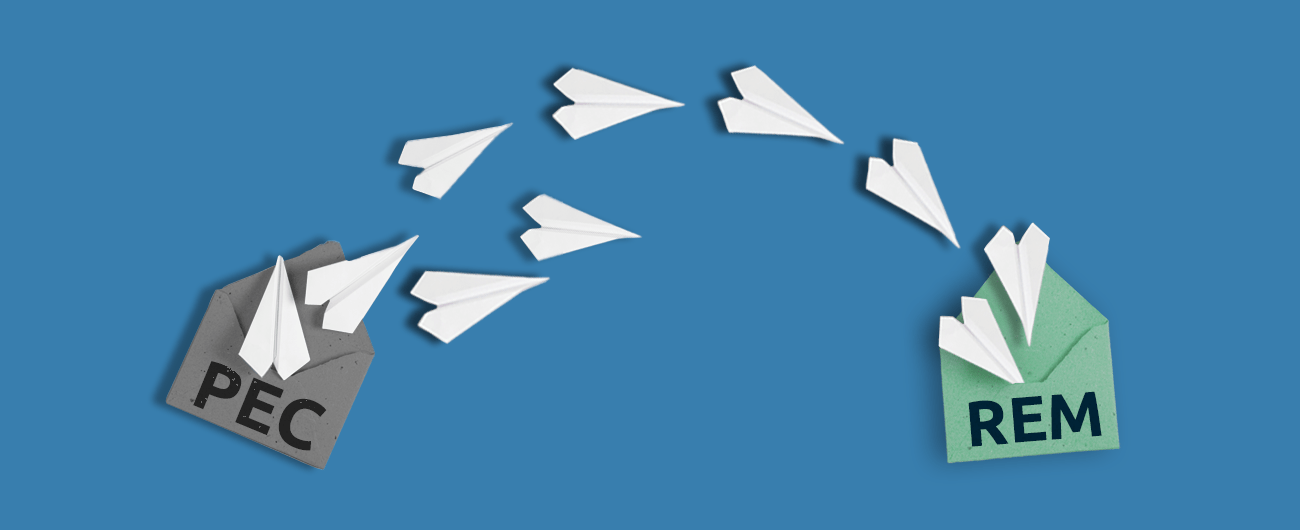13.08.2023
|
Reading time5 min
Tech for a better business
Choosing a B Impact Assessment as a performance measure can lead to benefits in the short and medium term
Intesa has decided to tackle a B Impact Assessment: we are moving towards a new way of doing business, where transparency, ethics, and environmental/social sustainability become the basis for benevolent and sustainable innovation.
We live in a time where technological innovation makes exponential leaps from year to year. Artificial intelligence, machine learning, blockchain, the internet of things – these have been inching into our lives through everyday technology, and yet they are not quite household words.
We have already talked about how the lockdown has highlighted a need for a return to humanity, the need to pursue innovation for the sake of humankind. To place human beings front and center, we have to rethink our business model as well. Because something in our society is ripe for change.

The foundation of “Business for Benefit”
What has been changing? Consumers, first and foremost. A recent study by the IBM Institute for Business Value and NRF* found that at least six out of every ten persons surveyed said they were willing to change their purchasing habits in order to lower their environmental impact. Customers are therefore increasingly sensitive to issues of corporate sustainability, ethics, and transparency within those companies manufacturing their products.
Customers have raised the bar for big business: purchasing power is now in the hands of generations who have been, for some time, keenly aware of the century’s major problems: social inequities, environmental protection, corruption.
Now, thanks in no small part to the thinking of the world’s great economists, the 21st century appears to be a watershed moment where words turn into action. This awareness has made its way to business owners as well, with a ripple effect on business models. No longer “profit above all else,” the new driving force is “sustainable business.” Not just the bottom line, but the positive impact the company has on the community, on society. From shareholder value to stakeholder value. Welcome to the world of B Corporations.
What are B Corps and how do businesses get certified?
The concept of B Corps was born in 2005 in the US as a global movement, with the goal of disseminating a progressive business model, one in which companies take responsibility for social regeneration, and measure their performance not just in dollars and cents, but in the positive impact they bring to society. The primary goal continues to be profit, but the way to achieve that goal is by generating social value both within the company (for example, through employee programs) and outside the company (e.g. choosing suppliers whose operations meet B Corp standards, or electing solutions that lead to a reduced environmental impact).
Companies who obtain B Corp certification may also choose to convert into a benefit corporation. Becoming a B Corp, therefore, means announcing to the market that you have made a very specific choice for your business.
B Corp certification requires filling out a B Impact Assessment. This questionnaire measures the company’s impact in five topical areas: people, environment, community, governance, and consumers. Points are awarded from a minimum of zero to a maximum of 200.
A request for certification requires a minimum of 80 points. Only 2.8% of companies who have started down the path have been able to secure certification, and indeed only 2500 companies in the world can make that claim.
Intesa (an IBM Company)’s journey
Completing the B Impact Assessment means much more than just filling out a questionnaire. It means taking a look in the mirror, and reflecting on the change one hopes to effect in the world, by starting with the company itself. It means re-examining current practices, but more importantly, pushing the company to strive for more.
Now, at thirty years since the company’s founding, we have decided to measure the impact of our business using the B Impact Assessment. At the same time, we began to change our practices, starting with a wellness program for employees called “InWellness,” a program aimed at disseminating a culture of health and wellbeing within the company. Smartworking has become the norm, and in fact was in place well before the lockdown was implemented. Finally, we have applied our code of ethics and sustainability to company processes, and to managing our relationships with external stakeholders.
The pivot towards B Corp certification represents a path that ends with a company that is profoundly changed, with a renewed mission, long before the company’s entity type is ever altered.
We are moving towards a new way of doing business, where transparency, ethics, and environmental/social sustainability become the basis for benevolent and sustainable innovation. Another important step towards making Tech for Humans a reality. Tech for a Better Business
* Source: Meet the 2020 consumers driving change. Why brands must deliver on omnipresence, agility, and sustainability
Browse categories
You might be interested in
10.12.2025
Intesa, a Kyndryl Company, obtains Open ES rating
Intesa, a Kyndryl Company, a leading Italian Qualified Trust Service Provider and Benefit Corporations, has certified its sustainability rating on Open ES.

Regulations
03.02.2025
Qualified e-Archiving: a guide to the new Qualified Digital Archiving
Discover what Qualified e-Archiving is, its implications, and how to implement it according to the eIDAS 2.0 regulation for secure and compliant digital archiving.

Regulations
03.02.2025
REM Certified Email: the new european standard for secure communications
Certified Electronic Mail (PEC) will be replaced by Registered Electronic Mail (REM), a new European standard for secure communications, which will ensure greater interoperability and…









